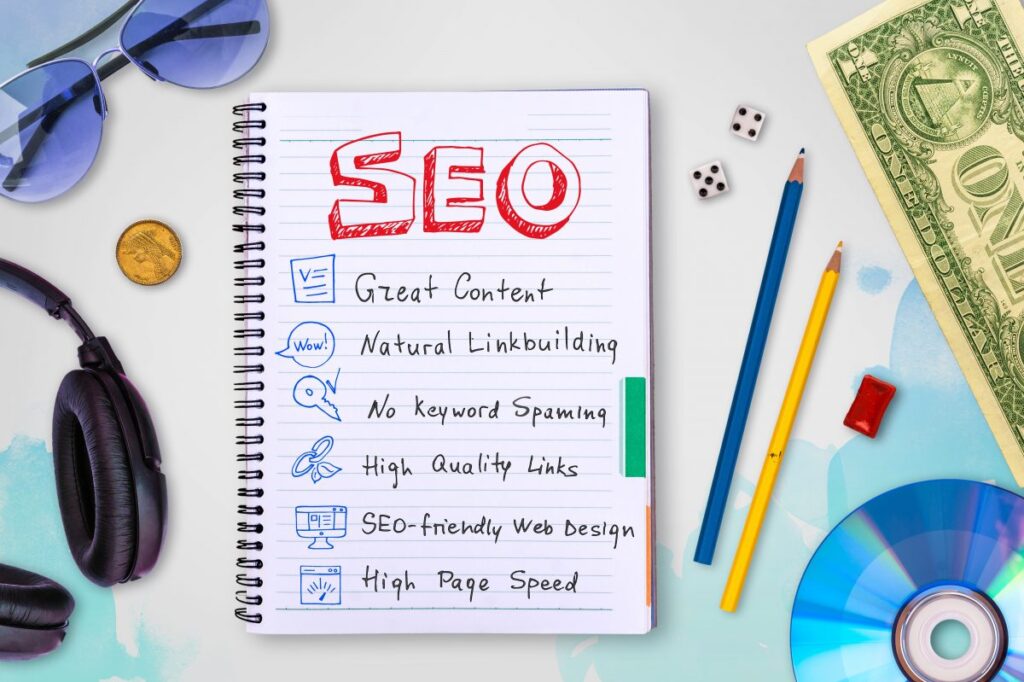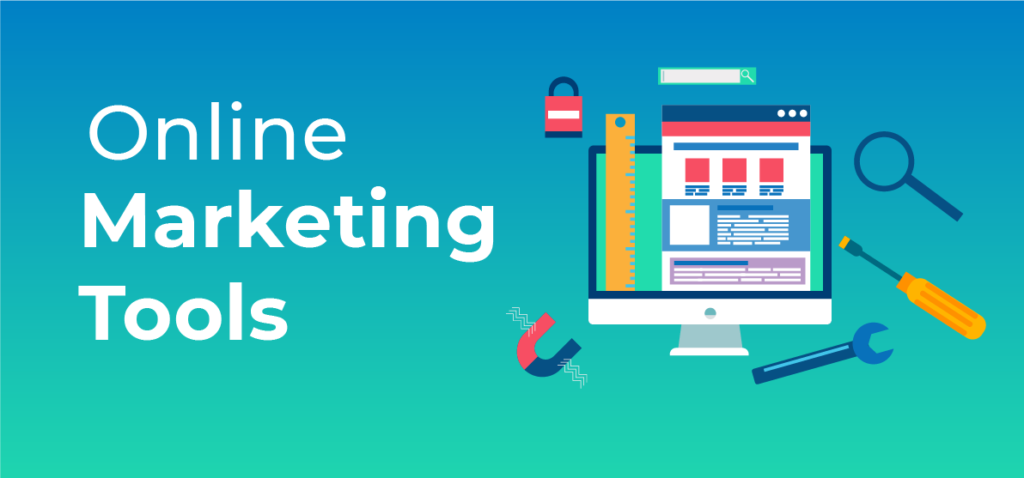Even as the first signs of generative AI rolled out, the concerns surrounding its potential replacement of human workers began to rise. McKinsey projected that AI will force 12 million occupational switches by 2030. It is also expected to automate 30% of total hours worked in the US.
Similarly, the Harvard Business Review also reported that ”almost every job” will be impacted by AI in one way or another. Interestingly, AI’s impact is not limited to full-time jobs. The technology has also made its way into the world of freelancing.
In fact, AI is transforming the way marketing gigs are being carried out. We’re now in the era of marketing freelancing with AI, a combination of AI-powered tools and humans working together to achieve marketing goals. Let’s have a detailed overview of this fusion.
Current State of Freelancing in Marketing
When we talk about freelancing, most people assume it to be about writing or web development. However, marketing is one of the most in-demand skills in the freelance space.
Early in 2023, Fiverr, a freelancing marketplace, reported that 73% of the workers in the US will either start or continue freelancing moving forward. The trend is primarily due to the power balance that has shifted since the Great Resignation of 2021 and now.
Monthly quits in the US
More than 47 million US workers left their jobs in 2021, citing several reasons, which the Harvard Business Review summarized as the 5 R’s.
- Retirement: Some workers, particularly those who wanted a little more out of life, retired.
- Relocation: Most workers were not in favor of relocating for work.
- Reconsideration: Many started to reconsider the role of work in their lives.
- Reshuffling: Some workers reshuffled to other roles in the industry, similar to their previous roles but with better working conditions and more money.
- Reluctance: Most importantly, workers were reluctant to come back to the office for in-person work after seeing the benefits and work-life balance potential of the no-commute WFH option.
Although these factors were imminent, employers still had leverage due to the looming recession and the general fear of job insecurity. Heavy layoffs in tech and other sectors further created a sense of uncertainty. In such conditions, freelancing has emerged as an alternative that gives people more control over their work.
In 2023, there were 73.3 million freelancers in the US. But seeing as this trend will continue, Statista projects the figure to rise to 90.1 million by 2028.
Number of freelancers in the US from 2017 to 2028
How Do Businesses Feel About Working With Freelancers?
The good news is businesses don’t mind working with freelancers at all. Why would they? It’s cheaper and less hassle for them. Plus, the work quality is usually top-notch.
It’s not just small or mid-sized businesses that are working with freelancers. Tech giants like Google also hire independent contractors. As of March 2023, Google hired 121,000 independent contractors and temp workers globally. Interestingly, the number is less than Google’s full-time employee count (102,000).
It shows that even large corporations recognize the benefits of hiring freelancers, which include:
- Lower recruitment costs
- Access to a large talent pool
- More flexibility in terms of project-based work
- Less overhead costs
- Diverse and fresh perspectives
- Potential for idea testing
It also seems like the trend toward working with freelancers isn’t exactly new.
An Upwork survey found that 62% of businesses had already hired freelance talent. Fiverr also reported a 44% year-over-year increase because clients spent much more on freelance projects in the Q1 of 2020. In fact, high-value buyers represented 58% of Fiverr’s revenue.
These stats show that the trend had already begun after the COVID-19 pandemic. It’s only gaining more momentum now.
Upwork’s Future Workforce Report 2022 found that 66% of hiring managers plan to increase their use of freelancers in the next two years. That means 2024 might just be the year of freelancers.
Hiring managers planning to hire more freelancers
Freelancing in Marketing
Let’s look closely at how freelancing has revolutionized the marketing industry and given professionals more control over their careers.
Post Great Resignation, many businesses hired a freelance marketer because they couldn’t find full-time, skilled professionals. On the other hand, freelance marketers are readily available for hire. They also help solve short-term goals without full-time commitment. Also, global teams have become a norm as the pandemic has made it possible to work with freelancers regardless of their location.
According to Edward Fu, former CMO at ZipRecruiter, the best marketers ”don’t like being stuck with one company.” So, freelancing is attractive to the best talent — the best from Google’s and Facebook’s standpoints.
Must Read: 8 Surprising Facts About Gen AI You Didn’t Know!
AI Tools and Technologies Impacting Marketing Freelancers
As freelancing was gaining momentum, so were the technological advancements. Both had their own trajectories parallel to each other, but they collided with the advent of generative AI. As AI became ‘’smarter,’’ it started doing much of the work freelance marketers previously did.
The following AI tools and technologies significantly impacted freelancers.
Marketing Automation Tools
Automation has crept into most industries, including digital marketing. AI-driven tools automate repetitive tasks such as email marketing, social media management, lead generation, segmentation, and analysis. Statista reported that the revenue for the global marketing automation software industry will be $5.4 billion in 2023, and the figure will double by 2031.
Global marketing automation software industry size 2022-2031
Some marketing automation tools businesses use include Marketo, Mailchimp, HubSpot, Drip, Omnisend, ActiveCampaign, and more. These tools automate most activities, from social media posting to lead nurturing.
Generative AI (Content Marketing)
Generative AI has also taken over the content creation space. The technology uses natural language processing (NLP) to generate human-like text, and it’s getting better with time.
Writing tools like Jasper and WriteSonic can create website copy and blogs, whereas tools like Copy.ai and Conversion.ai generate ad copies, product descriptions, and more.
These tools present a significant challenge for freelance content writers as businesses can generate content without their assistance.
AI Video and Voiceover Tools
Besides hiring marketers for more hands-on tasks like PPC management or SEO, businesses also work with voiceover artists, designers, video creators, and editors. However, AI also disrupts this space through voiceover and video creation tools. Some examples include:
- Synthesia: To create digital avatars
- Visia: To convert a script into a video
- Opus Clip: To repurpose long-form content into short videos for Instagram and TikTok
- Descript: To edit a video by editing its script
Previously, AI was doing generative work only. Now, it is also learning to be creative, affecting creative freelancers.
Chatbots and Virtual Assistants
Back in the day, you’d go to a website and converse with a human support representative. Many of them were freelancers. AI chatbots have taken over this role now.
In a survey, 80% of respondents said they have interacted with a chatbot. Although most people prefer to wait for human agents, they don’t mind talking to a chatbot first.
Number of people who have chatted with a chatbot
Currently, chatbots can resolve repetitive tasks. However, as AI advances, chatbots may be able to handle more complex tasks, such as providing personalized product recommendations and handling customer complaints.
Ad Campaign Optimization Tools
Since ads were short-term marketing strategies, many businesses hired freelancers to help them create and manage ad campaigns. But now, it seems like AI can do this, too. Google Ads Smart Bidding is an example of AI technology that automates ad bidding, helping businesses optimize their ad campaigns for maximum efficiency.
As more similar tools emerge, businesses will have a lower need for manual campaign management from freelancers. A smart way to tackle this would be doing marketing freelancing with AI. Simply put, freelancers should use AI to supplement their services rather than view it as a threat.
Changes in Job Roles and Skills for Marketing Freelancers
Moving forward, one thing is clear: AI is here to stay. So, freelancers have no choice but to adapt to it. As generative AI gets smarter, it will affect occupations requiring cognitive skills more than physical ones. Moreover, jobs that typically require a university degree will most likely be exposed to the effects of generative AI.
Tweet about AI being here to stay
In marketing, this would mean that freelancers need to polish the skills AI isn’t so good at. According to PeoplePerHour’s survey of their own platform in January 2023, buyers are looking for the following marketing skills:
- Exhibition Marketing: As mentioned, AI isn’t expected to affect physical occupations as much as cognitive ones. Marketing skills that require physical presence, such as exhibition marketing, will still be in demand.
- LinkedIn Marketing: LinkedIn’s ”human” touch is what sets it apart from most other job-hunting and networking platforms. Business leaders will attempt to keep it this way.
- Video Marketing: Yes, AI can create videos. But they’re usually generic; the voiceover sounds robotic, and the facial expressions of the people on screen aren’t natural. Brands will still need video marketers for content creation, especially since most publications believe video marketing will be among the top marketing trends in 2024 due to its strong, convincing power.
People convinced to buy products by watching video
Marketing freelancing with AI is the future. Freelancers will have to upskill themselves to develop AI-related skills. Besides keeping them employed, it would also help increase their earnings.
According to a study by the Center for Social Data Science at the University of Copenhagen and the Oxford Internet Institute, workers who possess AI skills are ‘’particularly valuable.’’ They also earn 21% more than their counterparts lacking AI skills. In some instances, their salaries can be up to 40% higher.
Keeping this in mind, freelancers should proactively develop their AI skills.
It’s also helpful to keep an eye on emerging AI trends and technologies. For instance, AI-powered chatbots are becoming increasingly popular. Freelancers with expertise in chatbot development can take advantage of this trend.
Some top skills that can help you stay relevant in an AI-powered future include:
- Emotional intelligence
- Flexibility
- Analytical judgment
- Intellectual curiosity
Future Predictions for Marketing Freelancing With AI
Here are some of our predictions for marketing freelancing in a world with AI.
Freelancing Will Grow
Just because AI is around doesn’t mean freelancers must take the back seat. We’re not merely being overly optimistic; freelance leaders also share this sentiment. The HumanCloud trend tracker reports positive feelings surrounding freelancing among CEOs.
Growth of freelancing from 2017-2027
Marketing Freelancers Will Benefit
AI will render some skills obsolete. But looking on the brighter side for freelance marketers, marketing is one of the top verticals benefiting from the spurt in freelance hires.
A flurry of mergers and acquisitions will also continue in 2024 as companies join hands to take on new technologies and reach new markets. The trend will increase opportunities for freelancers in consulting, marketing, and tech.
AI Can Potentially Support Marketing Freelancers
It’s understandable why many freelancers might see AI as the enemy. The scare is real for those who think AI will lead to their extinction. However, that fear may not be entirely justified.
AI is an incredibly powerful tool that can support and enhance the work of marketing freelancers. It can take over mundane tasks like data entry, giving freelancers more time to focus on creative and strategic work. Pat Petitti, CEO of Catalant, says that AI can provide analytic and research-based help to independent workers, improving their work delivery.
Tips for Marketing Freelancers to Adapt
Since marketing freelancing with AI is meant to be the norm in the future, here are some tips for freelancers to adapt.
Adapt to AI Assistants and Tools
Instead of shunning AI altogether, marketing freelancers should embrace it. The future of work will inevitably become intertwined with AI. Why not learn to work with it and take advantage of its capabilities?
Discover Niche Expertise
Don’t just be a content marketer; be a specialized Instagram marketer, and that too for a specific industry.
Characteristics of your niche
The future is about being highly skilled in a particular area. AI might be able to do generic things, but you’ll be the one with deep-rooted expertise in your field. That’s valuable to clients.
Keep Upskilling and Reskilling for AI-Driven Freelancing
Never stop learning should be your mantra if you are a marketing freelancer. As AI improves, so should you.
Conclusion
Like all other fields, AI has also affected marketing freelancing. Many tasks previously done by marketing freelancers are now being automated. It’s important to adapt and embrace AI rather than fear it. That’s the only way to stay relevant in the age of AI.
On top of that, upskilling for all future possibilities is paramount. After all, AI isn’t going anywhere soon. So, why not learn to co-exist?
Frequently Asked Questions
Will Marketing Freelancers Be In Demand in 2024?
Yes, marketing freelancers, especially those with AI-related skills, are expected to be in high demand by 2024.
Which Domains Should Marketing Freelancers Specialize in to Stay Relevant?
To stay relevant, marketing freelancers should specialize in digital marketing, social media marketing, content marketing, and data analytics.
How Can Marketing Freelancers Supplement Their Work With AI?
Marketing freelancers can delegate repetitive or menial tasks to AI. They can also use AI-powered tools to optimize their campaigns and improve audience targeting.







